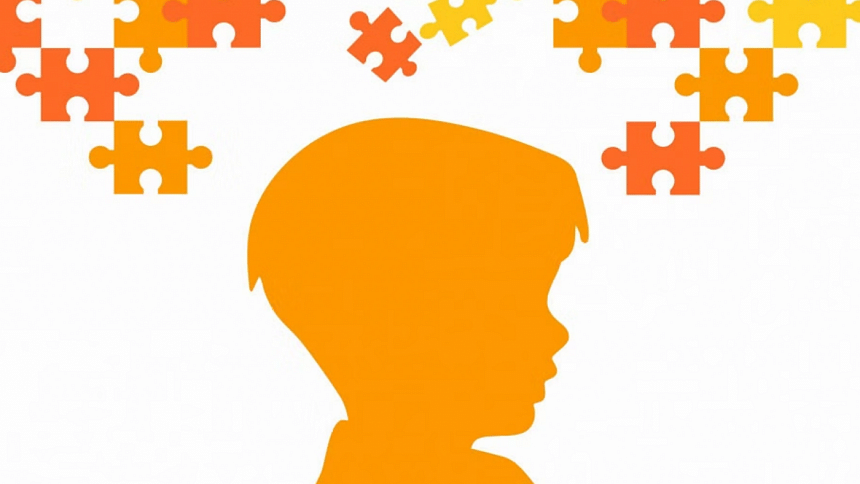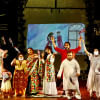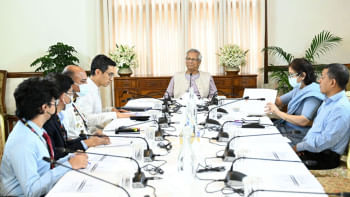Why autism acceptance in Bangladesh is still a far-fetched goal

When the month of April rolls around every year, inspiring stories of people with autism achieving incredible feats take up a large chunk of everyone's newsfeeds. And it is rightfully so, considering Autism Awareness Month is supposed to celebrate these individuals to the fullest.
So, why does it seem that, despite such global recognition, people with autism in Bangladesh are still subjected to structural discrimination and stigmatisation?
Well, for starters, people's knowledge and perception of autism or Autism Spectrum Disorder (ASD) is almost always misguided to some extent. Owing to existing stereotypes and misconceptions, people on the spectrum are grouped together under one loosely defined umbrella, even though their similarities and dissimilarities are unique and variegated.
Since all of them have their own set of needs, boundaries, and reactions to different situations, specialised care and attention are prerequisites to ensuring their betterment.
But the reception that they end up receiving is usually far from kind.
It can't be that bad, can it?
Sadly, it can. One could assume that the barriers begin from the availability of autism treatment in the country since most conversations seem to linger on the same. However, even deliberating the inaccessibility of medical treatment for autism would be akin to putting the cart before the horse, considering there's generally little to no scope for diagnosing it in the first place.
Although formal diagnoses do not exist to identify ASD in children, scheduling check-ups with paediatricians at an early stage is vital for documenting developmental milestones and possible abnormalities. Ensuring an early intervention for children with ASD can work volumes in favour of speeding up their development.
Unfortunately, several barriers bar children in our country from being properly diagnosed altogether. For one, many children are left undiagnosed – especially in rural areas – due to ignorance on their families' part. Abnormalities in neurodevelopment are brushed off as slow learning or attributed to physical illnesses. Additionally, a great number of patients with Down Syndrome – a genetic disorder which is wholly different from ASD – are misdiagnosed with autism spectrum disorder.
These only make up the tip of the iceberg though, since the inequalities that end up persisting are far more deeply rooted in society.
Firstly, a lack of trained professionals to work with persons with autism is felt throughout the country, even more so outside of the capital city.
There are also concerns about the quality of teachers recruited at schools that cater to children with special needs. Teaching a young child with autism demands a thorough understanding of their skills and the patience to communicate with them. Discharging teachers who lack either or both would likely do more harm than good.
Moreover, on a more personal level, children with ASD are on the receiving end of religious, cultural, and familial stigmas and superstitions. Ill-received sentiments and unwarranted notions regarding the specifics of autism and how it comes to play a sizable role in ratifying the stigmas these children grow up with.
In a study conducted to gauge the condition of autistic children within urban and rural areas, more than half of the participants claimed that their condition was blamed on religious and spiritual rumours that have almost no connections to authentic beliefs.
Accepting autistic people into the mainstream
In recent years, one of the forefront objectives of Autism Awareness Month has been the inclusion and acceptance of autistic individuals into the mainstream. It is inherent to our social responsibility to support autistic individuals in becoming self-dependent and valued members of their communities.
To that extent, the government has undertaken positive initiatives such as "Rights and Protection of Persons with Disabilities Act 2013" and "Neurodevelopmental Trust Act 2013".
Bangladesh is also a part of CRPD (Convention on the Rights of Persons with Disabilities), an international treaty that mandates the rights and dignity of disabled individuals. However, the enforcement of these legislations is far from enough, as neurodivergent people are still being excluded from the public sphere. Opportunities for them to flourish are scarce, and they face a chronic cycle of injustice in every outlet of their lives.
Furthermore, the prevalence of ableism has been normalised to an extent where terms like "autistic" are used as slurs whenever anyone displays hyperactive or abnormal behaviour.
All these things considered and coupled with the various barriers that exist in the medical field and respective localities, autism acceptance still continues to be a far-fetched goal in our country.
At the end of the day, autism is not a choice, but ignorance is. It is on us to imagine and ensure an inclusive society where people with autism can strive in their element. The end goal should not be the glorification of autism with tokenistic participation, but rather the empowerment and inclusion of people with autism so that they can function as valued members of society.
References:
- The Daily Star (March 21, 2021). People with Down Syndrome: Hardly any protection, inclusion
- The Daily Star (July 27, 2021). Persons with Disabilities: Their needs being constantly ignored
- The Daily Star (January 26, 2020). Autism spectrum disorder and its care in Bangladesh
- ResearchGate (May, 2020). "We Need More Power to Stand Up": Designing to Combat Stigmatization of the Caregivers of Children with Autism in Urban Bangladesh
- United News of Bangladesh (April 08, 2022). Autism Awareness: Momen reiterates Dhaka's commitment
Ayaan is obsessed with dinosaur comics and poorly written manga. Encourage him to spend his time productively at [email protected]

 For all latest news, follow The Daily Star's Google News channel.
For all latest news, follow The Daily Star's Google News channel. 








Comments